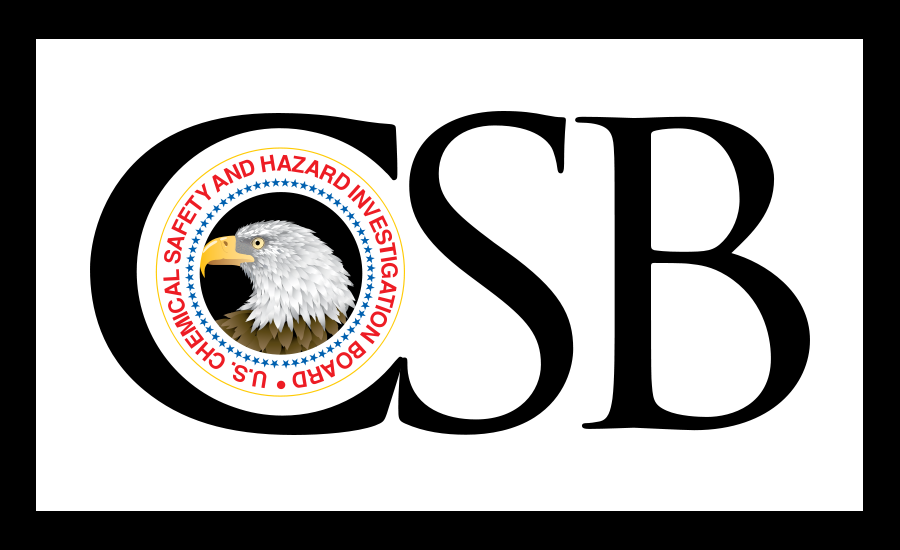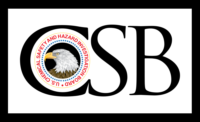CSB urged at meeting to resume policy of naming victims’ names

The U.S. Chemical Safety Board (CSB) will be reviewing a recent policy change, after testimony at its public meeting on Tuesday from occupational health experts and worker advocates opposed to the agency’s decision to stop naming incident victims in its reports.
CSB Interim Executive Kristen acknowledged “a lot of passion around this subject,” and said that she’d asked the agency’s general counsel to review the policy and to report back with recommendations. The CSB stopped including the names of those killed in the chemical accidents it investigated because doing so “may infer culpability on the part of the entity responsible for the operation of the facility where the incident occurred,” according to a spokesperson.
The names of workers who lose their lives on the job is “simple factual information that should be included” when reporting on chemical spills, explosions and other tragic events, said Peter Dooley, safety and health project consultant for National COSH.
Dooley was one of several occupational health experts and worker advocates who testified in person and by telephone on Tuesday June 25 during a public meeting of the CSB in Washington DC.
An independent federal agency charged with investigating industrial chemical incidents, the CSB has included names of fatally injured workers in its reports since 2014. The agency changed its policy with the June 12 release of a report about a January 2018 fatal gas well blowout at a Pryor Trust gas well Oklahoma, which killed five workers who were not named in the report.
At its June 25 meeting, the CSB released its final report on a November 2014 release of the chemical ethyl mercaptan at a DuPont Plant in La Porte, TX. Four workers died in that incident, but their names were omitted from the CSB report.
The January 2018 explosion at Pryor Trust claimed the lives of Josh Ray, Mike Smith, Cody Risk, Parker Waldridge, and Roger Cunningham. The 2014 release of ethyl mercaptan at DuPont’s LaPorte Texas plant killed Crystle Rae Wise, Wade Baker and brothers Gilbert and Robert Tisnado.
Speakers at the meeting who were in favor of the CSB resuming its policy of naming incident victims followed written comments – in the form of a letter sent to the agency earlier this month – that was signed by dozens of worker safety organizations and individuals.
No member of the public spoke at the public meeting in favor of continuing to exclude the names of deceased workers.
Including worker’s names, said Dooley, is “an extremely important piece of information that makes the report much more relatable to its audience, which is workers of all types.”
“Without including these names, the individuals don’t become part of historical record,” said Mary Miller, an occupational nurse who spoke on behalf of the American Public Health Association. “It’s really important to document that there are real people involved in these incidents, we acknowledge who they were.”
While urging the CSB to return to its former policy by including workers’ names, several speakers also praised the agency for the quality and impact of its investigative reports, which include recommendations on how to avoid future tragedies.
“The Chemical Safety Board is the best deal in Washington,” said Mike Wright, director of health, safety and environment for the United Steelworkers (USW). “Your budget is way too low, and you do amazing work with that kind of budget and small staff.”
USW, which represents workers in refineries, chemical plants and other industrial workplaces, reports on some 30 fatal workplace incidents a year, Wright said, and includes the names of workers. “In all the years I’ve been with the Steelworkers, I’ve never had a family object to that. Lots of families appreciate it, for them it’s kind of a memorial to their loved one.”
When a worker dies on the job, Tonya Ford, executive director of United Support and Memorial for Workplace Fatalities (USMWF) told the CSB, “that one day, that one incident to us, it’s forever. And we’re trying to turn that forever into something positive. Your report truly makes a difference and it can be that tool for prevention.”
“As many years as I’ve been doing this, I have never had a family member come up to me asking that we don’t mention their son, daughter, brother in any report or any article or anything,” said Ford, whose uncle Robert Fitch died after a fall at a grain milling plant in 2009. “I’ve always heard, please share, please tell his or her name. We urge you and ask you please remember them. Share their names and let us not forget them.”
Members of the public can submit comments to the Chemical Safety Board at public@csb.gov.
Looking for a reprint of this article?
From high-res PDFs to custom plaques, order your copy today!





